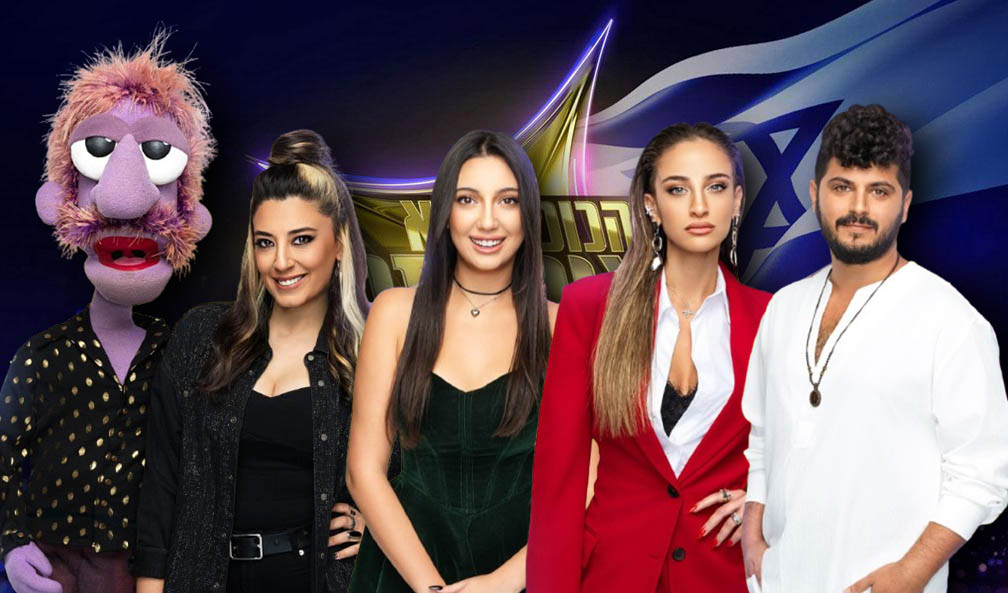
Israel’s representative for Eurovision 2026 will be selected through the same format that chose Eden Golan and Yuval Raphael, aiming to continue recent successes. An agreement between Kan and Keshet will be finalized soon.
The Israeli representative for Eurovision 2026 is expected to be chosen once again through the show “HaKokhav HaBa“. A final agreement between the national broadcaster and Keshet is anticipated to be signed in the coming days. This move ensures continued collaboration between two major forces in the Israeli entertainment industry and strengthens Israel’s standing in the world’s largest music competition. This partnership has proven itself in recent years, with Israel’s representatives achieving impressive results at Eurovision.
Continued Success, Savings, and Artist Promotion
According to a report by culture journalist Ran Boker, the agreement between Kan and Keshet will not only allow for a professional and comprehensive selection process but will also save significant state resources. The collaboration between the national broadcaster and the commercial channel has repeatedly demonstrated its effectiveness – in recent years, Israeli representatives such as Yuval Raphael and Eden Golan have shown that this method yields strong results in the competition. The joint selection also has a broad cultural impact: it bolsters Israel’s status on the global entertainment stage and promotes emerging artists to the forefront.
High Ratings and Public Engagement
 Selecting the representative through “HaKokhav HaBa” has made it one of the most talked-about phenomena in the Israeli entertainment industry. Over the years, having witnessed hundreds of contestants compete on stage, I have been struck by how the show creates a genuine connection between the audience and Israeli music. In conversations I have had with Eurovision fans in the Euromix WhatsApp community, it repeatedly emerges that the public prefers this collaboration over other methods, thanks to its broad exposure and the success it brings.
Selecting the representative through “HaKokhav HaBa” has made it one of the most talked-about phenomena in the Israeli entertainment industry. Over the years, having witnessed hundreds of contestants compete on stage, I have been struck by how the show creates a genuine connection between the audience and Israeli music. In conversations I have had with Eurovision fans in the Euromix WhatsApp community, it repeatedly emerges that the public prefers this collaboration over other methods, thanks to its broad exposure and the success it brings.
In recent times, Eurovision has experienced social and political changes, including calls for Israel’s exclusion from the competition. Nevertheless, Israel’s success continues, with European audiences consistently voting in its favor. The gap between jury and public votes has become a hallmark of Israel in the contest, sparking lively debates across Europe.
A Winning Collaboration in a Competitive Industry
The joint selection of the representative demonstrates openness to collaboration, despite competition between the entities. In my view, this is a wise decision that strengthens the entire industry and allows Israel to continue standing out at Eurovision. The method also enables the development and promotion of new artists, some of whom go on to become international stars.
“HaKokhav HaBa” format was launched in 2015, with Nadav Guedj as its first winner. He finished ninth at Eurovision 2015 with his song “Golden Boy“. Subsequently, Hovi Star, Imri Ziv, and of course Netta Barzilai – who won Eurovision 2018 with her song “Toy” and brought the contest to Israel for the third time.
Looking ahead, it appears that the collaboration between Kan and Keshet may continue in the coming years. Israel’s success at Eurovision, along with high audience engagement, ensures that the contest will remain a central event in the Israeli broadcasting schedule. Industry sources express a desire to keep promoting Israel in the competition, even during times of political challenges and external criticism.
Israel at Eurovision 2025
“New Day Will Rise” is the song performed by Yuval Raphael, who was chosen to represent Israel after winning the 11th season of “The Next Star.” Israel advanced to the final after winning the second semi-final with 203 points and finished second overall with 357 points in the grand final. Israel ranked first in the public vote but only 14th with the jury. This marks the third consecutive year that Israel has reached the top five – an unprecedented achievement.
Eurovision 2025: This was Israel’s 47th participation in Eurovision. Israel joined the contest in 1973 and has won four times. Its most recent victory was at Eurovision 2018 with the song “Toy,” performed by singer Netta Barzilai.

